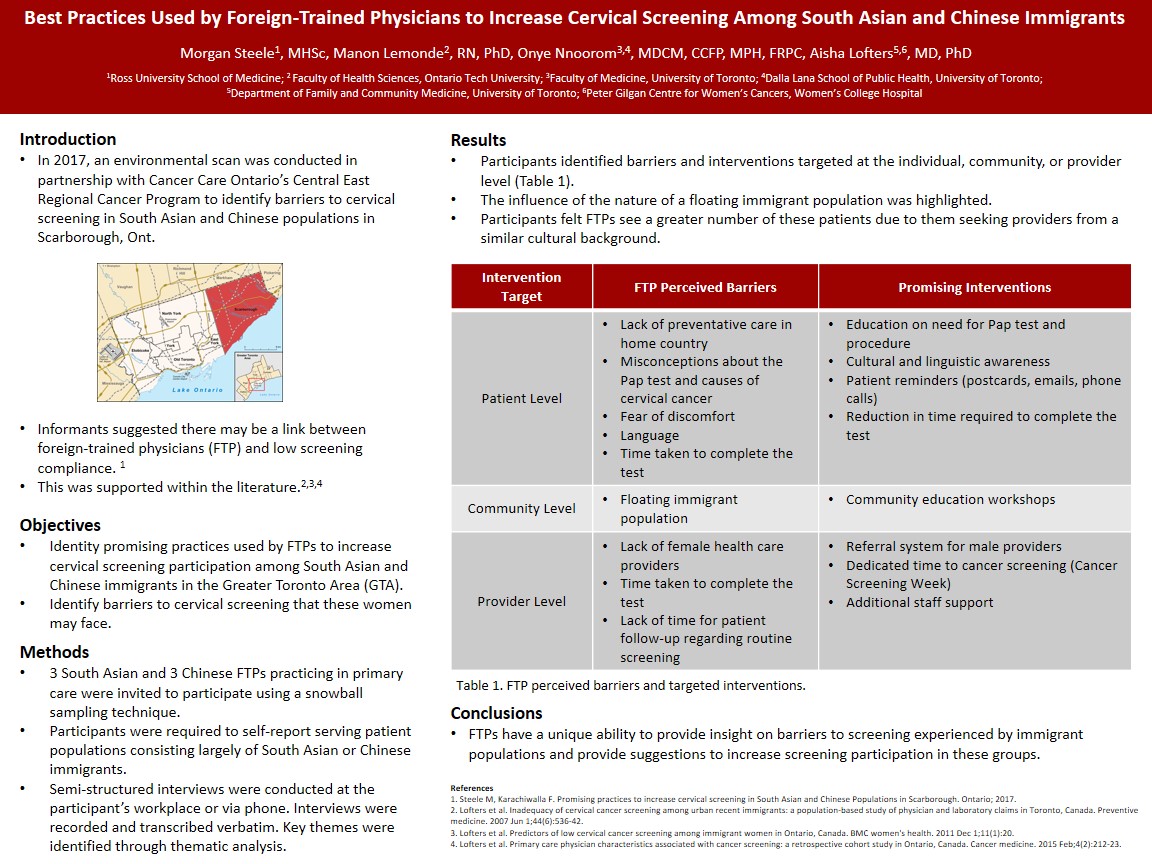SRFP015: Best Practices Used by Foreign-Trained Physicians to Increase Cervical Screening Among South Asian and Chinese Immigrants
Morgan Steele, MHSc; Manon Lemonde, PhD, RN; Aisha Lofters, MD, PhD
Abstract
Objectives: Explore promising practices used by FTPs to increase cervical screening participation among South Asian and Chinese immigrants in the Greater Toronto Area (GTA). Identify barriers to cervical screening that these women may face.
Study Design: Thematic analysis.
Setting or Dataset: Primary care clinics in the GTA.
Population Studied: Participants were required to self-report serving patient populations consisting largely of South Asian or Chinese immigrants. Six South Asian or Chinese FTPs currently working in primary care were invited to participate in the study using a snowball sampling technique.
Intervention/Instrument (as pertinent): Semi-structured interviews were conducted at the participant’s workplace or via phone. Interviews were recorded and transcribed verbatim. Key themes pertaining to promising practices for increasing cervical screening participation, as well as barriers to participation were identified.
Main and Secondary Outcome Measures (if any): N/A.
Results or Anticipated Results: FTP-perceived barriers to screening included patient’s lack of experience with primary care, misconceptions about the causes of cervical cancer, and discomfort with male providers. Participants also shared that the nature of floating immigrant population posed a barrier to screening, referring to groups that split their time between different countries, presenting only when an acute issue is present. It was felt that FTPs see a greater number of these patients due to them seeking providers from a similar cultural background. Promising practices for improving screening participation included explaining the necessity of the test, reducing appointments required to complete it, and holding dedicated cancer screening weeks within their practice. Cultural and linguistic accessibility were also found to improve participation.
Conclusions: FTPs have a unique ability to provide insight on barriers to screening experienced by immigrant populations and provide suggestions to increase screening participation in these groups.

Jack Westfall
jwestfall@aafp.org 11/21/2021very interesting study. thanks for sharing at NAPCRG.